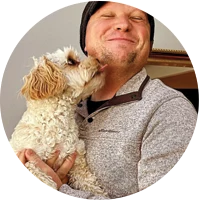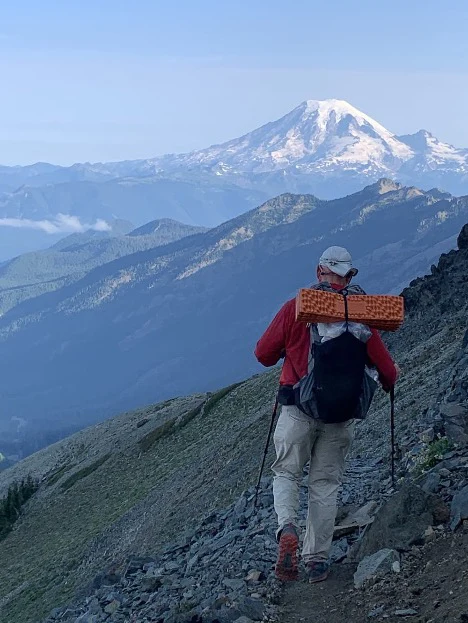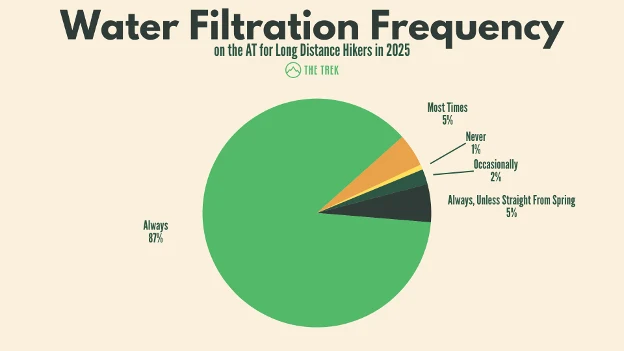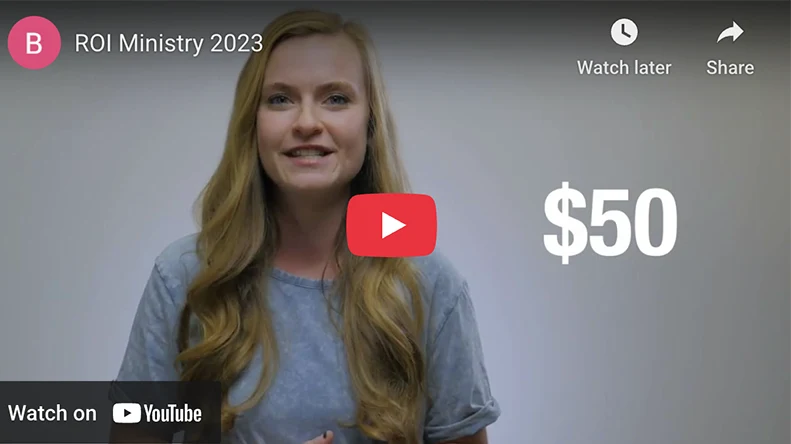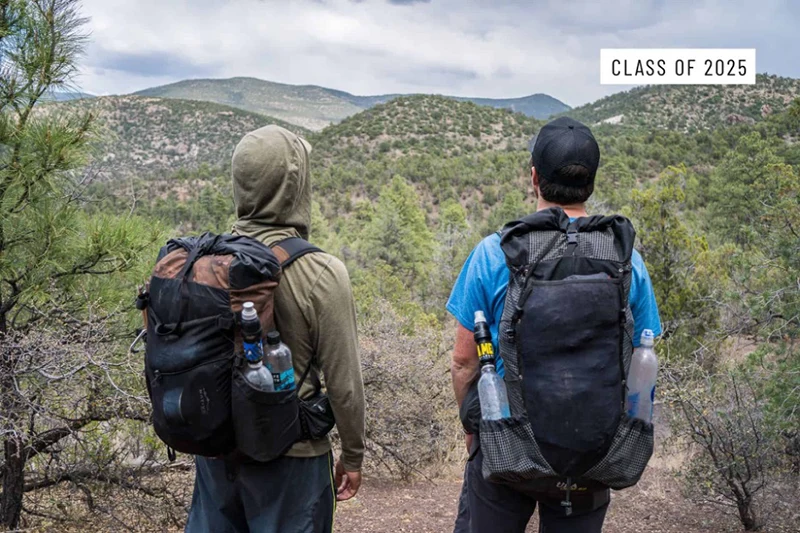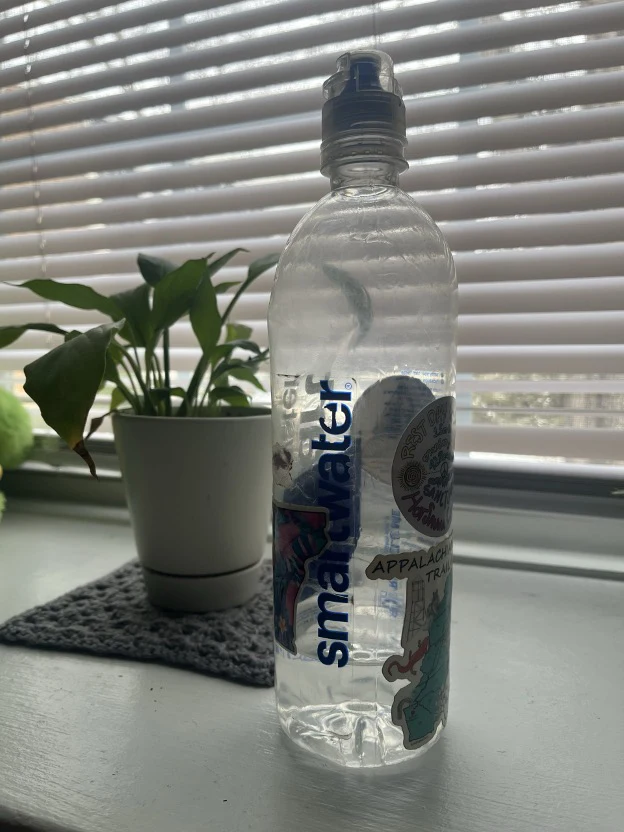Unqualified, Unprepared, and Unrelenting
Unqualified, Unprepared, and Unrelenting
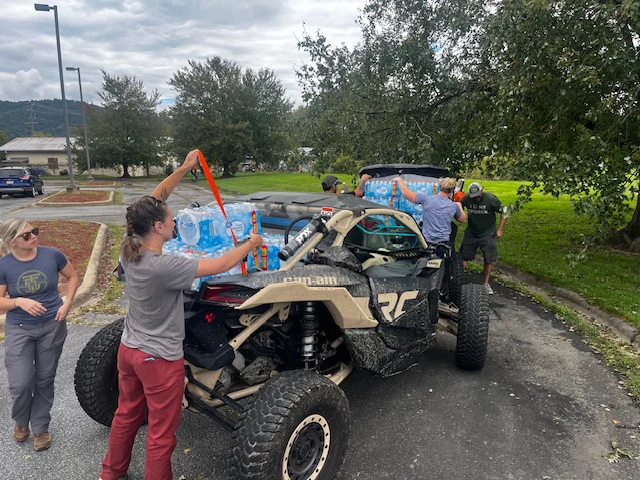
Unqualified, Unprepared, and Unrelenting
YouTube video highlight
After Hurricane Helene hit his home of Western North Carolina, John Badger took his passion to help others from a Facebook group to a nonprofit.
Read more about the projectThe following is the story of John Badger, founder of Grounded Boots Relief.
Click here to get involved or donate to support Grounded Boots Relief work.
The lower Appalachians are usually a quiet, wet, and beautiful landscape. The Appalachian people are generally self-sufficient and proud. But come September 27th of 2024, the area became one of the most horrifying scenes in many lifetimes. I woke up and saw the devastation that happened while I slept. Trees blocked the roads everywhere you looked. Power was out. Cell service was spotty at very best. I ventured out, helpless.
The problem: I didn’t have so much as a chainsaw. I met a neighbor with his electric chainsaw and helped him out for a little while. I left a voicemail with a national aid organization, in hopes of volunteering with them.
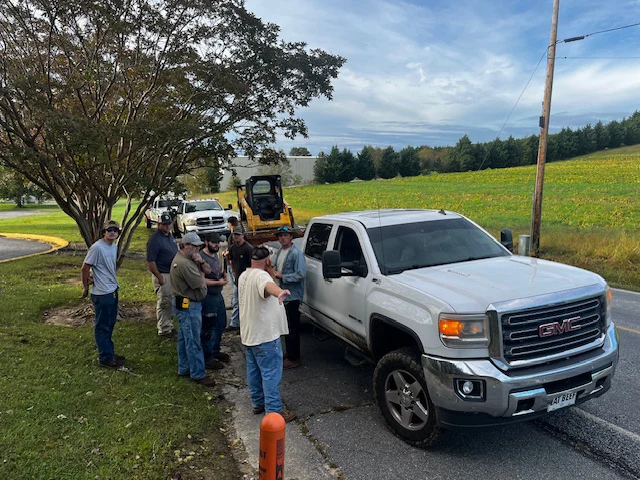
That first day, I eventually found a spot with service at a downed tree across the road, and made a Facebook group: Hendersonville Disaster Relief.
My goal was to mark locations of downed trees, so people with chainsaws could act on the information and hopefully open access to emergency vehicles around the county. I watched that group explode, with about 800 members joining that first day. I asked for volunteers to meet me the next morning, with very little expectation of anyone showing up.

The next day, a group of about 10 people showed up at the Ingles parking lot, and I literally wept.
One group from Georgia came up with earth-moving equipment that I felt unqualified to even look upon - much less lead in a disaster situation. After bouncing from hither to yon, we landed in Edneyville on Chimney Rock Road. The road was entirely wiped out, and the devastation there was immense.
We distributed goods donated by our volunteers. Canned food, water, whatever we could all scrounge up. We went door to door, dropping off gallons of water at houses no one answered the doors of, just in case. We gave out water, and informed many residents of the devastation outside, in case they needed rides out.

It was about this time that the national aid organization reached back out to me, suggesting that I take a multi-hour online course so I could become qualified to volunteer with them.
Nobody had time for that- assuming the internet was even available. I told them I probably had a more effective means to assist my community, but that I would keep them in mind in the future.
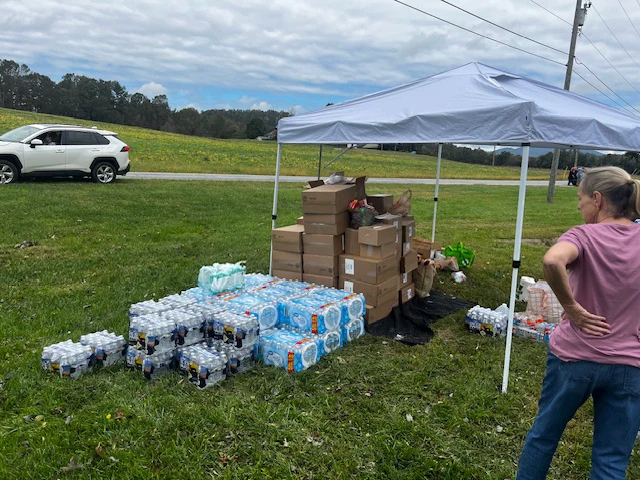
I couldn’t sleep. The devastation was so great, and the outside world needed to know our plight. I still felt so helpless. There were reports of people flooded in their homes, some sleeping on top of their cars because no one could reach them. The helicopters arrived, and they were constant, overhead. I wept. I wept a lot, knowing that while I was merely inconvenienced by the power outage, and spotty cell service, people were just out of reach, some dying, and some wishing themselves to be.
We continued our efforts the next morning, and met at the Justice Academy. People with side-by-sides showed up. Donations and volunteers started pouring in. We loaded up the vehicles and hikers with water, food, and anything else that made sense. We sent them out, telling them of where we had been, and advised them to follow the washed-out road of Chimney Rock, and keep going until they couldn’t anymore.

We lacked maps and communication. With several people seeing the donated products from the road, we also (unintentionally) created a donation/distribution hub. The line formed quickly, as people sought access to necessities they didn’t have at home. Running water didn’t exist, and all the grocery stores were limited to cash-only transactions.
The following days were a blur, but I will never forget the family of volunteers who brought their StarLink setup to use for internet communications. My phone rang constantly. My Facebook DMs were incessant, many getting lost in the spam folder. We set up a second operations hub in Black Mountain, continuing operations in Edneyville. Our reach went from Hendersonville, as far as Burnsville and Black Mountain. Our area was in such distress, and there seemed to be no order.
After living this response, I determined that there had to be a more effective way to help the our community in distress and bring order to the chaos.
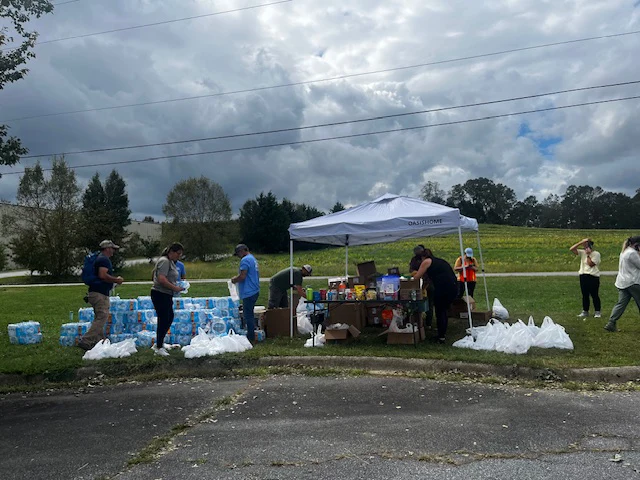
I, for one, am unqualified for this. Most recently, this ghost-tour-guide worked as a truck driver. I’m not a retired military man, I’m not in emergency management, I have no experience running - much less founding- a nonprofit.
But who else was doing it? So it was decided: I would endeavor to create a nonprofit, capable of responding to disasters. What we needed in the immedate aftermath was recon, search and rescue, and sustained support.
Since then, we have obtained 501(c)(3) nonprofit status, and we are continuing local operations in and around Western North Carolina. We also reached out to Blue Rhino, who have since donated three entire truckloads of propane to Grounded Boots Relief.
We have been growing as an organization, and bringing structure to our operations. We even reached out to Sawyer, who donated funds and some personal filtration straws.

We responded to the Virginia flooding in February, as well as supported the fire crews at the Polk County wildfires. We even hosted a donation drive for the wildfires across the country in California. As federal aid falters and another hurricane season approaches, the burden of disaster relief shifts to states and nonprofits like Grounded Boots.
Since September 2024, I have lived by General George Patton’s quote “A good plan violently executed today, is better than a perfectly executed plan next week.”
We still have a lot to learn, and we're working to ensure our volunteers are trained and ready for the roles they take on. From first aid to search and rescue, swiftwater response, drone piloting, and hub distribution, every task requires preparation. We can't afford to send untrained people into situations that demand skill and safety. In the wake of Helene, desperate times called for desperate measures. Going forward, we’re committed to doing it right.
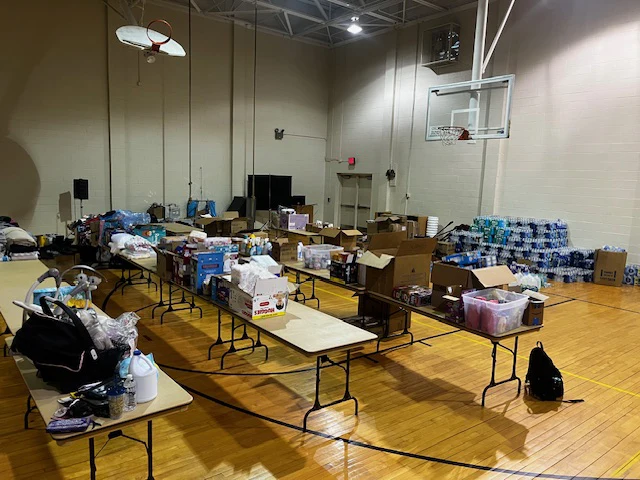
We have been building relationships with organizations to ensure effective structure, and to ensure we don’t lose sight of our intentions. This will also ensure effective coordination, not requiring multiple entities doing the same tasks. New volunteers will still be encouraged to join our efforts, but they'll start in roles that don’t require specialized training, working under those who are trained and capable of showing them the ropes.
Unlike my experience with the national aid organization I had interaction with, we’ll be able to onboard local volunteers immediately, putting them where they’re most suited.
The time has not yet arrived where I can stop wearing my many, many hats. But I am in the process of distributing the hats I wear, to people with a passion for community and service. One hat at a time.
Click here to learn more about Grounded Boots Relief, or donate to directly support their work.
Unqualified, Unprepared, and Unrelenting


The following is the story of John Badger, founder of Grounded Boots Relief.
Click here to get involved or donate to support Grounded Boots Relief work.
The lower Appalachians are usually a quiet, wet, and beautiful landscape. The Appalachian people are generally self-sufficient and proud. But come September 27th of 2024, the area became one of the most horrifying scenes in many lifetimes. I woke up and saw the devastation that happened while I slept. Trees blocked the roads everywhere you looked. Power was out. Cell service was spotty at very best. I ventured out, helpless.
The problem: I didn’t have so much as a chainsaw. I met a neighbor with his electric chainsaw and helped him out for a little while. I left a voicemail with a national aid organization, in hopes of volunteering with them.

That first day, I eventually found a spot with service at a downed tree across the road, and made a Facebook group: Hendersonville Disaster Relief.
My goal was to mark locations of downed trees, so people with chainsaws could act on the information and hopefully open access to emergency vehicles around the county. I watched that group explode, with about 800 members joining that first day. I asked for volunteers to meet me the next morning, with very little expectation of anyone showing up.

The next day, a group of about 10 people showed up at the Ingles parking lot, and I literally wept.
One group from Georgia came up with earth-moving equipment that I felt unqualified to even look upon - much less lead in a disaster situation. After bouncing from hither to yon, we landed in Edneyville on Chimney Rock Road. The road was entirely wiped out, and the devastation there was immense.
We distributed goods donated by our volunteers. Canned food, water, whatever we could all scrounge up. We went door to door, dropping off gallons of water at houses no one answered the doors of, just in case. We gave out water, and informed many residents of the devastation outside, in case they needed rides out.

It was about this time that the national aid organization reached back out to me, suggesting that I take a multi-hour online course so I could become qualified to volunteer with them.
Nobody had time for that- assuming the internet was even available. I told them I probably had a more effective means to assist my community, but that I would keep them in mind in the future.

I couldn’t sleep. The devastation was so great, and the outside world needed to know our plight. I still felt so helpless. There were reports of people flooded in their homes, some sleeping on top of their cars because no one could reach them. The helicopters arrived, and they were constant, overhead. I wept. I wept a lot, knowing that while I was merely inconvenienced by the power outage, and spotty cell service, people were just out of reach, some dying, and some wishing themselves to be.
We continued our efforts the next morning, and met at the Justice Academy. People with side-by-sides showed up. Donations and volunteers started pouring in. We loaded up the vehicles and hikers with water, food, and anything else that made sense. We sent them out, telling them of where we had been, and advised them to follow the washed-out road of Chimney Rock, and keep going until they couldn’t anymore.

We lacked maps and communication. With several people seeing the donated products from the road, we also (unintentionally) created a donation/distribution hub. The line formed quickly, as people sought access to necessities they didn’t have at home. Running water didn’t exist, and all the grocery stores were limited to cash-only transactions.
The following days were a blur, but I will never forget the family of volunteers who brought their StarLink setup to use for internet communications. My phone rang constantly. My Facebook DMs were incessant, many getting lost in the spam folder. We set up a second operations hub in Black Mountain, continuing operations in Edneyville. Our reach went from Hendersonville, as far as Burnsville and Black Mountain. Our area was in such distress, and there seemed to be no order.
After living this response, I determined that there had to be a more effective way to help the our community in distress and bring order to the chaos.

I, for one, am unqualified for this. Most recently, this ghost-tour-guide worked as a truck driver. I’m not a retired military man, I’m not in emergency management, I have no experience running - much less founding- a nonprofit.
But who else was doing it? So it was decided: I would endeavor to create a nonprofit, capable of responding to disasters. What we needed in the immedate aftermath was recon, search and rescue, and sustained support.
Since then, we have obtained 501(c)(3) nonprofit status, and we are continuing local operations in and around Western North Carolina. We also reached out to Blue Rhino, who have since donated three entire truckloads of propane to Grounded Boots Relief.
We have been growing as an organization, and bringing structure to our operations. We even reached out to Sawyer, who donated funds and some personal filtration straws.

We responded to the Virginia flooding in February, as well as supported the fire crews at the Polk County wildfires. We even hosted a donation drive for the wildfires across the country in California. As federal aid falters and another hurricane season approaches, the burden of disaster relief shifts to states and nonprofits like Grounded Boots.
Since September 2024, I have lived by General George Patton’s quote “A good plan violently executed today, is better than a perfectly executed plan next week.”
We still have a lot to learn, and we're working to ensure our volunteers are trained and ready for the roles they take on. From first aid to search and rescue, swiftwater response, drone piloting, and hub distribution, every task requires preparation. We can't afford to send untrained people into situations that demand skill and safety. In the wake of Helene, desperate times called for desperate measures. Going forward, we’re committed to doing it right.

We have been building relationships with organizations to ensure effective structure, and to ensure we don’t lose sight of our intentions. This will also ensure effective coordination, not requiring multiple entities doing the same tasks. New volunteers will still be encouraged to join our efforts, but they'll start in roles that don’t require specialized training, working under those who are trained and capable of showing them the ropes.
Unlike my experience with the national aid organization I had interaction with, we’ll be able to onboard local volunteers immediately, putting them where they’re most suited.
The time has not yet arrived where I can stop wearing my many, many hats. But I am in the process of distributing the hats I wear, to people with a passion for community and service. One hat at a time.
Click here to learn more about Grounded Boots Relief, or donate to directly support their work.
Unqualified, Unprepared, and Unrelenting


The following is the story of John Badger, founder of Grounded Boots Relief.
Click here to get involved or donate to support Grounded Boots Relief work.
The lower Appalachians are usually a quiet, wet, and beautiful landscape. The Appalachian people are generally self-sufficient and proud. But come September 27th of 2024, the area became one of the most horrifying scenes in many lifetimes. I woke up and saw the devastation that happened while I slept. Trees blocked the roads everywhere you looked. Power was out. Cell service was spotty at very best. I ventured out, helpless.
The problem: I didn’t have so much as a chainsaw. I met a neighbor with his electric chainsaw and helped him out for a little while. I left a voicemail with a national aid organization, in hopes of volunteering with them.

That first day, I eventually found a spot with service at a downed tree across the road, and made a Facebook group: Hendersonville Disaster Relief.
My goal was to mark locations of downed trees, so people with chainsaws could act on the information and hopefully open access to emergency vehicles around the county. I watched that group explode, with about 800 members joining that first day. I asked for volunteers to meet me the next morning, with very little expectation of anyone showing up.

The next day, a group of about 10 people showed up at the Ingles parking lot, and I literally wept.
One group from Georgia came up with earth-moving equipment that I felt unqualified to even look upon - much less lead in a disaster situation. After bouncing from hither to yon, we landed in Edneyville on Chimney Rock Road. The road was entirely wiped out, and the devastation there was immense.
We distributed goods donated by our volunteers. Canned food, water, whatever we could all scrounge up. We went door to door, dropping off gallons of water at houses no one answered the doors of, just in case. We gave out water, and informed many residents of the devastation outside, in case they needed rides out.

It was about this time that the national aid organization reached back out to me, suggesting that I take a multi-hour online course so I could become qualified to volunteer with them.
Nobody had time for that- assuming the internet was even available. I told them I probably had a more effective means to assist my community, but that I would keep them in mind in the future.

I couldn’t sleep. The devastation was so great, and the outside world needed to know our plight. I still felt so helpless. There were reports of people flooded in their homes, some sleeping on top of their cars because no one could reach them. The helicopters arrived, and they were constant, overhead. I wept. I wept a lot, knowing that while I was merely inconvenienced by the power outage, and spotty cell service, people were just out of reach, some dying, and some wishing themselves to be.
We continued our efforts the next morning, and met at the Justice Academy. People with side-by-sides showed up. Donations and volunteers started pouring in. We loaded up the vehicles and hikers with water, food, and anything else that made sense. We sent them out, telling them of where we had been, and advised them to follow the washed-out road of Chimney Rock, and keep going until they couldn’t anymore.

We lacked maps and communication. With several people seeing the donated products from the road, we also (unintentionally) created a donation/distribution hub. The line formed quickly, as people sought access to necessities they didn’t have at home. Running water didn’t exist, and all the grocery stores were limited to cash-only transactions.
The following days were a blur, but I will never forget the family of volunteers who brought their StarLink setup to use for internet communications. My phone rang constantly. My Facebook DMs were incessant, many getting lost in the spam folder. We set up a second operations hub in Black Mountain, continuing operations in Edneyville. Our reach went from Hendersonville, as far as Burnsville and Black Mountain. Our area was in such distress, and there seemed to be no order.
After living this response, I determined that there had to be a more effective way to help the our community in distress and bring order to the chaos.

I, for one, am unqualified for this. Most recently, this ghost-tour-guide worked as a truck driver. I’m not a retired military man, I’m not in emergency management, I have no experience running - much less founding- a nonprofit.
But who else was doing it? So it was decided: I would endeavor to create a nonprofit, capable of responding to disasters. What we needed in the immedate aftermath was recon, search and rescue, and sustained support.
Since then, we have obtained 501(c)(3) nonprofit status, and we are continuing local operations in and around Western North Carolina. We also reached out to Blue Rhino, who have since donated three entire truckloads of propane to Grounded Boots Relief.
We have been growing as an organization, and bringing structure to our operations. We even reached out to Sawyer, who donated funds and some personal filtration straws.

We responded to the Virginia flooding in February, as well as supported the fire crews at the Polk County wildfires. We even hosted a donation drive for the wildfires across the country in California. As federal aid falters and another hurricane season approaches, the burden of disaster relief shifts to states and nonprofits like Grounded Boots.
Since September 2024, I have lived by General George Patton’s quote “A good plan violently executed today, is better than a perfectly executed plan next week.”
We still have a lot to learn, and we're working to ensure our volunteers are trained and ready for the roles they take on. From first aid to search and rescue, swiftwater response, drone piloting, and hub distribution, every task requires preparation. We can't afford to send untrained people into situations that demand skill and safety. In the wake of Helene, desperate times called for desperate measures. Going forward, we’re committed to doing it right.

We have been building relationships with organizations to ensure effective structure, and to ensure we don’t lose sight of our intentions. This will also ensure effective coordination, not requiring multiple entities doing the same tasks. New volunteers will still be encouraged to join our efforts, but they'll start in roles that don’t require specialized training, working under those who are trained and capable of showing them the ropes.
Unlike my experience with the national aid organization I had interaction with, we’ll be able to onboard local volunteers immediately, putting them where they’re most suited.
The time has not yet arrived where I can stop wearing my many, many hats. But I am in the process of distributing the hats I wear, to people with a passion for community and service. One hat at a time.
Click here to learn more about Grounded Boots Relief, or donate to directly support their work.



